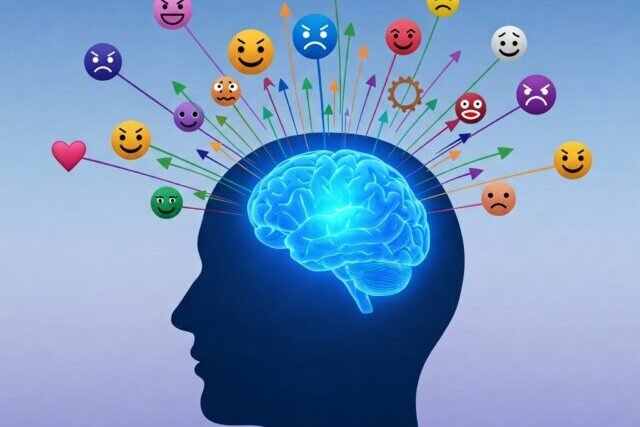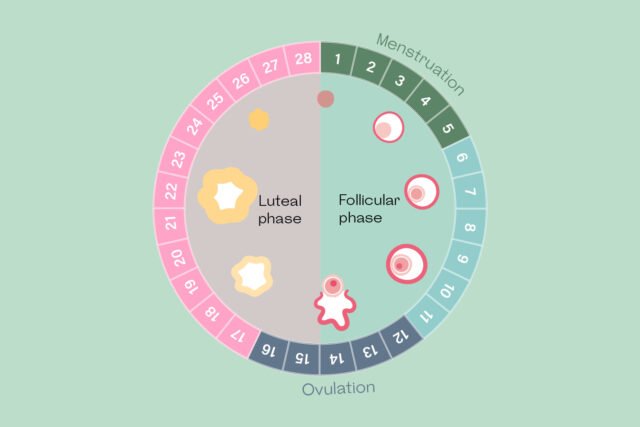
*This post may contain affiliate links. Read more.*
Introduction
Emotional intelligence (EQ) is a powerful tool in our mental health toolkit, directly influencing how we understand, manage, and respond to emotions. It plays a pivotal role in fostering strong relationships, improving mental well-being, and navigating life’s challenges. While IQ often takes the spotlight in academic and professional circles, emotional intelligence is a better predictor of success and happiness in personal and professional life. Backed by years of psychological research, studies have shown that emotional awareness and regulation are critical for improving emotional resilience, reducing stress, and enhancing overall mental health. This article will explore the science behind emotional intelligence, its practical benefits, and how you can enhance your emotional awareness and mindfulness for a healthier mindset.
1. What is Emotional Intelligence?
Emotional intelligence refers to the ability to recognize, understand, and manage our own emotions, as well as the emotions of others. It comprises five key components:
- Self-awareness: Understanding your emotions and their impact on your thoughts and behaviors.
- Self-regulation: The ability to control impulsive feelings and behaviors, and to manage emotions healthily.
- Motivation: Harnessing emotions to pursue goals with energy and persistence.
- Empathy: Recognizing emotions in others and responding to them appropriately.
- Social skills: Managing relationships to move people in desired directions.
Studies have shown that people with high emotional intelligence are better at handling stress, communicating effectively, and cultivating meaningful relationships. For further reading on emotional intelligence and its practical applications, visit Harvard Business Review .
2. The Science Behind Emotional Awareness and Its Benefits
Emotional awareness is at the core of emotional intelligence. Research from the American Psychological Association highlights that developing awareness of your emotions can improve mental well-being by reducing stress and increasing resilience. Recognizing and labeling emotions helps you gain better control over them, leading to healthier decision-making and reactions to stressors.
One study published in Psychological Science found that people who were trained to recognize and label their emotions experienced a reduction in emotional distress and anxiety. This ability to identify feelings allows individuals to approach challenges with more composure, as emotional reactions become less overwhelming.
Incorporating mindfulness practices, such as meditation and focused breathing, has also been shown to enhance emotional awareness. By focusing on the present moment and observing emotions non-judgmentally, individuals can improve emotional regulation and reduce negative thought patterns (NIH).
3. How Emotional Intelligence Improves Mental Well-Being
Developing emotional intelligence enhances not only emotional awareness but also overall mental well-being. A study from Harvard Health found that individuals with high emotional intelligence tend to experience less anxiety and depression. This is because they are better equipped to manage and process difficult emotions, rather than suppress or react impulsively.
Self-regulation, a crucial aspect of EQ, is key to preventing emotional overwhelm. By practicing techniques such as deep breathing, journaling, or seeking therapy, individuals can reduce the intensity of negative emotions and foster a balanced state of mind. These practices allow individuals to focus on problem-solving, rather than being consumed by emotional reactions.
Moreover, empathy – the ability to understand the emotions of others – plays a major role in relationship-building and conflict resolution. High EQ individuals often report stronger connections with family, friends, and colleagues, as they can respond with sensitivity and understanding. This social support is critical for maintaining mental well-being.
4. Practical Ways to Enhance Emotional Intelligence
While emotional intelligence is a skill that can be developed over time, there are actionable steps you can take to improve your emotional awareness and regulation:
- Practice mindfulness: Engage in daily mindfulness practices such as meditation, deep breathing, or yoga to increase awareness of your thoughts and emotions.
- Keep a journal: Write down your feelings regularly. Journaling helps you process emotions and can provide insights into emotional triggers.
- Develop empathy: Practice active listening and try to understand the perspectives of others. Empathy strengthens relationships and improves social interactions.
- Seek feedback: Ask for constructive feedback from trusted friends, family, or coworkers to help increase self-awareness.
- Set emotional goals: Identify areas where you’d like to improve, such as managing stress better or becoming more patient in stressful situations.
Studies have shown that regular practice of mindfulness can enhance the brain regions responsible for emotional regulation, improving EQ over time (PubMed).
Conclusion
Mastering emotional intelligence can lead to profound improvements in both mental well-being and everyday life. By becoming more aware of your emotions, learning to regulate them, and cultivating empathy, you can reduce stress, increase resilience, and foster better relationships. Start integrating emotional intelligence practices into your daily routine, and witness the transformative effect it can have on your mental health and personal growth. Whether through mindfulness, journaling, or seeking feedback, each step you take toward emotional awareness brings you closer to a more balanced, fulfilled life.
#emotional awareness #emotional intelligence #emotional regulation #emotional resilience #mental health #mental well-being #mindfulness #mindfulness practice #psychology #self-awareness









